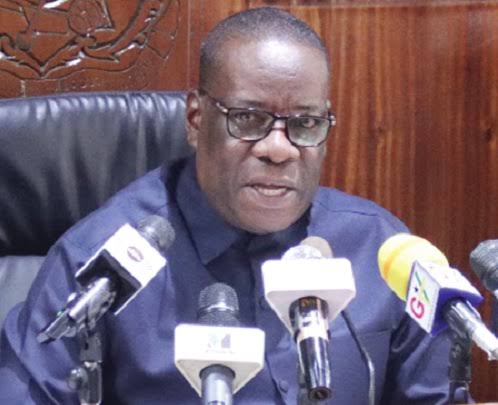Broadcasting
New Access to Premium Local TV Channels Enabled via Satellite Debuts

Nigeria’s latest free-to-air (FTA) local channel bouquet, “PREMIUM.FREE”, has enabled local television broadcast audiences access to 13 new premium channels which are custom-made for African viewers. These include multinational language channels like Cinema Hausa, and popular African lifestyle channels such as True African.
Delivered via SES satellites, this innovative channel bouquet is supplied by AfricaXP, the leading independent African network, which is well-known for its compelling Nollywood catalogue and longstanding partnerships with prominent West African producers.
Craig Kelly, CEO of AfricaXP, says that working with SES has enabled PREMIUM.FREE to achieve the maximum possible reach in Nigeria. “We are confident that localization, coupled with our fresh international rights will provide the kind of content blend that modern West African audiences demand. Transmitted free-to-air via satellite, this is obviously a great offer at a price point that can’t be beaten.”
It is this blend of premium African programming with top-flight international content across a diverse range of themes from sports to movies, telenovelas, kids, factual, reality and lifestyle programming, which really sets PREMIUM.FREE apart from other channel bouquet offerings on the market.
SES, the world’s leading satellite operator with over 70 satellites, reaches over 9 million Direct-to-Home households across West Africa from its orbital position of 28.2 degrees East. Those households with existing FTA set-top boxes (STBs) will be able to start watching the new channels on their existing STBs for free.
“The Nigerian FTA market in particular offers great opportunities for growth, and we are proud to have engaged with PREMIUM.FREE to deliver a differentiated content package for Nigeria and offer more choice for viewers,” says Clint Brown, Vice President of Sales and Market Development, Africa for SES Video.
“New initiatives like this, which focus on delivering local and international content that is attractive for the end-consumer and is offered in high picture quality, will further develop consumer choice in Nigeria,” Brown concludes.
Broadcasting
New WAEC Program Offers Faster Route for Students to Improve WASSCE Grades

West African Examinations Council (WAEC) in Ghana, has announced a new initiative, which will allow students to resit their WASSCE papers as early as January and February 2025.

This is a change from the norm in Ghana, where candidates had to wait for the next private exam cycle.
The Head of Public Affairs at WAEC, John Kapi, disclosed this while speaking on JoyNews’ AM Show in Ghana.
He explained that the new programme, referred to as WASSCE PC1, provides a faster route for students to improve their grades.
“Students who access their results now and realise they need to resit one or two papers have until 8th January to register online through our website or at WAEC-accredited internet cafés. The exams will take place from 24th January to 15th February 2025,” Mr Kapi stated.
According to him, to aid candidates in their preparations, WAEC plans to expedite the release of chief examiners’ reports, saying, “These reports will provide detailed feedback on where students may have gone wrong and how they can better approach their studies and the examination process.
“We’ve advertised this programme widely through banners, our website, and our results checker platform to ensure that both students and parents are aware,” Mr Kapi added.
He said students whose results have been cancelled are also eligible to sit the WASSCE PC1 exams, provided they have not been banned for some years for malpractice.
“For now, the exams will be conducted in regional capitals due to the limited number of candidates. Prospective participants are urged to complete their registration by the 8th of January to take advantage of this opportunity.”
WAEC, however, expressed optimism that this initiative will allow candidates to quickly improve their grades and qualify for the next cycle of admissions, avoiding a year-long delay in their academic progress.
Broadcasting
NBC Okays Radio Station for CMCM

Christ Miracle Church Mission (CMCM) in Ojodu Berger, Lagos, has received approval from the National Broadcasting Commission (NBC) to operate its new state-of-the-art radio station.

The commission said the radio was ready to commence transmission after expressing satisfaction with the facility.
Mr Raphael Akpan, zonal director, NBC, stated this while leading a team of officials on an assessment tour of the radio station.
During the visit, the officials inspected the studio area, the transmitter, the inverter, the mast, the generator, and other important places.
After the tour, the zonal director spoke with reporters and expressed his pleasure at the church being granted a broadcast license to operate a radio station. He noted that this would enhance the church’s voice in the community.
The director also mentioned that the purpose of his visit was to ensure that proper procedures are followed and that the content broadcast adheres to current laws.
Akpan praised Prophet Peter Abiola Adebisi, founder of the church, along with the church council for their initiative to establish the radio station.
“From our observation, we can say that the CMCM Champion broadcasting network 90.7FM is ready for transmission.
“It is our prayer that this radio station will go places,” he said.
The zonal director emphasized the importance of proper training for the personnel working at the radio station.
He encouraged them to familiarize themselves with relevant sections of the National Broadcasting Code to ensure they are well-informed.
It is vital for studio managers to engage in self-reflection regarding their adherence to the standards outlined in the Code.
“The operators in the studio should thoroughly understand the various sections of the NBC, which cover broadcasting standards, commercials, engineering, and more,” he stated.
Prophet Adebisi commended the NBC management for granting the church permission to operate the radio station.
He mentioned that the station would promote church programs and policies, share the CMCM story with the world, train members, who have a passion for broadcast journalism, and create employment opportunities for them, among other benefits.
Additionally, Adegbie Taiwo Jordan, chief executive officer of the station, assured that the operators would comply with all broadcasting regulations set by the regulatory agency.
Broadcasting
Afrobeats and Amapiano Lead Africa’s Musical Revolution

Africa’s music scene is no longer just a regional sensation, it has become the pulse of global pop culture.

As African music continues to enchant global audiences, Spotify Wrapped 2024 unveils the diverse range of genres that people now enjoy all over the world. While Afrobeats and Amapiano often dominate headlines, this year’s Wrapped data sheds light on other emerging sounds that define Africa’s music.
Reimagined histories
Hiplife and Highlife from Ghana, rooted in the country’s rich cultural history, remain highly exported due to their fusion of traditional Highlife melodies with contemporary beats that keep them globally relevant.
Artists like King Paluta, Fameye, and KiDi are leading the way in blending traditional Highlife melodies with modern sounds. Fameye’s Very Soon and King Paluta’s Aseda—a heartfelt song of gratitude—are examples of how the genre is evolving. Their fresh take on Highlife has helped drive a 54% increase in global streams, a sign of the genre’s appeal to both local and international audiences.
In Kenya, Arbantone, mainly characterized by beats from samples of Kenyan old school hits. This sound combines elements of Gengetone and old Jamaican riddims, led by a wave of young rappers who bring the raw lyricism of Gengetone. Captivating young audiences, Arbantone is quickly rising on local music charts.
Arbantone grew significantly in 2024, partially thanks to viral dance challenges on social media. Artists like Dyana Cods’ “Set It”, harnessed the genre’s infectious beats and catchy lyrics to connect with her fans. The song became one of the most popular Arbantone tracks in Kenya, securing the number 3 most streamed Arbantone track in Kenya as revealed by the 2024 Spotify Wrapped data.
Embracing experimental sounds
Nigeria’s Alté is becoming more popular abroad where it’s now the country’s fourth-most exported genre in 2024. Pronounced “uhl-teh”, a shorthand for alternative, you may have heard the experimental mix of Afrobeats, R&B, and hip-hop, with electronic influences on tracks like Soh-Soh by Odeal or Amaarae’s Wanted. The likes of Amaarae, Lady Donli and Odunsi (The Engine) paved the way for a new generation of artists like DEELA, DETO BLACK and brazy to tap into Alté’s rebellious, bold and unconventional brand of self-expression. The global success of Alté-influenced musicians like Tems, Rema and Odeal symbolises how the genre is taking its place in mainstream music culture. Countries like Ghana have embraced the sound with over 60 billion Spotify streams, and Alté now has 41% more global plays than it did a year ago.
South Africa’s Afro House, known for its deep rhythms and soulful vocals, has become a favourite in electronic music circles around the world. DESIREE and DJ Shimza have been instrumental in influencing the growth of Afro House. DESIREE sets blend African rhythms with modern electronic sounds, while DJ Shimza’s electrifying global performances have propelled the genre to new heights. As more artists from around the world incorporate African sounds into their music, the genre has influenced global dance floors.
Household names
Afrobeats continues to lead Africa’s music revolution, evolving rapidly and driving the movement forward. In 2024, the genre saw a significant 28% increase in global streaming. Tracks like Santa by Ayra Starr, Rauw Alejandro, and Rvssian highlight the genre’s versatility, while Calm Down by Rema and Selena Gomez underscore its widespread international appeal. Collaborations like Skillibeng and Tyla’s Jump, Gunna showcase Afrobeats’ adaptability and its growing dominance on global charts.
Amapiano, meanwhile, has emerged as Africa’s fastest-growing genre, with a phenomenal 59% increase in global streaming in 2024.
Another sign that the future of global music will undoubtedly feature even more beats, grooves, and melodies from the continent.

 General News3 days ago
General News3 days agoNigeria Recovers $52.88m in Assets Linked to Former Petroleum Minister Diezani Alison-Madueke

 E-Business3 days ago
E-Business3 days agoCybersecurity Firm Warns of Phishing Threats Targeting Telegram Premium

 General News3 days ago
General News3 days agoTransform Your Health with QNET’s BELITE 123: The Ultimate Weight Management Solution

 General News3 days ago
General News3 days agoTikTok Announces Plans to Cease Operations in the U.S. by January 19, 2025

 E-Financial20 hours ago
E-Financial20 hours agoBudgIT Queries Irregularities in FG’s Proposed 2025 Budget

 General News20 hours ago
General News20 hours agoLagos State Sets Strict Deadline for 2024 Tax Returns Filing

 E-Financial20 hours ago
E-Financial20 hours agoNAICOM Seeks Police’s Support to Enforce Third-party Motor Insurance

 Telecom20 hours ago
Telecom20 hours agoSuspected Lakurawa Terrorists Kill 3 Telcoms Workers in Kebbi
















